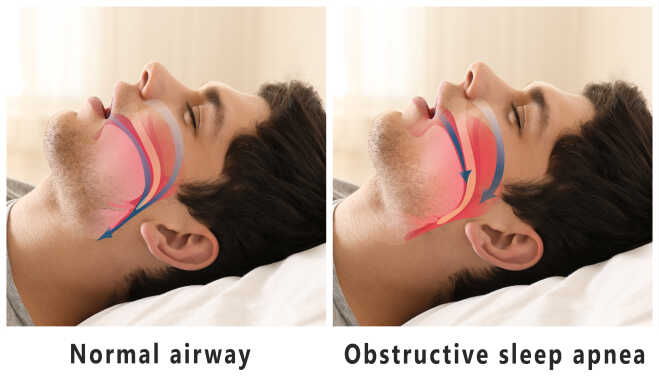A dentist is trained specifically to help manage the health of their patients’ teeth and the soft tissues of their mouth, and they understand the ways your dental care and oral structures may affect your airway health. This puts dentists, and Dr. Jeffrey T. Lodl specifically, in the unique position to help their patients achieve optimal airway health and combat the effects of sleep disordered breathing. To learn more about how our dentist can help you achieve better overall health and wellness with sleep dentistry in Arvada, Colorado, feel free to review the resources we have provided below or reach out to our team at 303-424-0767 to schedule your consultation at Arvada West Dental Care.
- Adult Sleep Health
- Home Sleep Tests
- Myofunctional Therapy
- NightLase® Sleep Apnea Treatment
- Pediatric Sleep Health
- Vivos Sleep Apnea Treatment

Sleep apnea stands as the most well-known sleep breathing disorder; however, there are a range of conditions that can disrupt normal breathing patterns during sleep. These conditions fall under the umbrella of sleep-disordered breathing (SDB), encompassing disorders characterized by irregular respiratory patterns and inadequate oxygen intake while asleep. SDB exerts a prolonged influence on sleep patterns, leaving individuals feeling fatigued or drained and placing strain on their nervous system and vital organs.
Several common sleep breathing disorders include:
- Obstructive Sleep Apnea
- Snoring
- Central Sleep Apnea
- Child Sleep Apnea
- Infant Sleep Apnea
- Sleep-Related Groaning
Recognizing the symptoms associated with sleep disorders is crucial to getting the help you need to maintain full systemic health. These symptoms may manifest as excessive daytime sleepiness (hypersomnia), difficulty initiating sleep at night (insomnia), snoring, abnormal breathing patterns, overall lack of energy, mood and behavioral changes, and difficulties concentrating.
Healthy sleep constitutes a fundamental pillar of overall well-being, safety and optimal daily functioning. Just as air and food are essential for the body, adequate sleep allows for healing and restoration of chemical balances within the body. Insufficient sleep impairs the proper functioning of the body and mind, resulting in adverse effects on overall health. Sleep deprivation contributes to a range of problems, including disruptions in the central nervous system and immune system, respiratory and digestive issues, altered hormone production, weight gain, impaired memory (short- and long-term), difficulty concentrating, daytime drowsiness, fatigue, mood changes including anxiety and depression, high blood pressure, increased susceptibility to diabetes and heart disease, and compromised balance.
If you suspect that you or a loved one may be experiencing a sleep breathing disorder, we strongly encourage you to reach out to our office and schedule an appointment with our dedicated dentist. We are committed to assisting you in maintaining optimal health and enhancing your quality of life.

 New Patient
New Patient  Meet the Team
Meet the Team